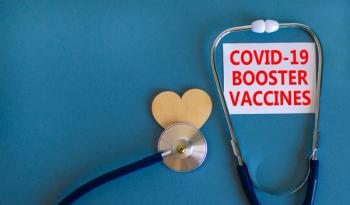
Unpaid Leave Increased for Americans Workers During COVID-19
United States employees who lacked access to paid leave missed out on an estimated $28 billion in wages over the first two years of the COVID-19 pandemic.
United States employees who lacked access to paid leave missed out on an estimated $28 billion in wages over the first two years of the COVID-19 pandemic, according to a
Workers who were low-income, self-employed, Black, Hispanic, women or living in households with children saw the largest increases in unpaid absences, the report shared. Their work absences due to personal illness, childcare needs, or family obligations increased by 50% compared to previous years.
Out of the men and women affected, women were over 40% more likely to be absent from work without pay during the first two years of the pandemic. The need to provide childcare was likely the reason.
Additionally, Hispanic and Black workers were more likely to be absent from work during the first two years of the pandemic, the release shared. Two-thirds of Hispanic/Latino workers and 57% of Black workers did not receive pay while absent from work due to personal illness, childcare needs, or another obligation.
It was also found that workers in households with less than $25,000 in annual income were more than three times as likely to be absent without pay compared to workers with annual incomes over $100,000.
Neepa Patel, CEO, of
"Disproportionate access to paid leave compounds health disparities for women, people of color, low-income workers and other vulnerable populations," Patel said. "That’s why it’s so important to ensure all workers have access to holistic benefits, including paid leave. We need more equitable policies to promote happy, healthy, and engaged employees."
Shara Cohen, CEO,
“Caregiving for a loved one is challenging under the best of conditions — and it’s that much harder for women, people of color and LGBTQ+ who are disproportionately impacted by unpaid leave," Cohen said. "Financial insecurity is a core social determinant of health that can significantly harm the physical and mental health of the caregiver, as well as those in their care."
"The pandemic has exposed and exacerbated this problem, which is why we’re seeing payers and employers across the country not only taking note, but also taking tangible steps to address the problem," she said. "Equitable leave is foundational to caregiver support and better health outcomes."
It's determined by researchers that workplace safety standards and public health policies, combined with comprehensive paid leave policies that cover all workers, could help reduce the spread of COVID-19 and protect workers and families from missed wages.
Newsletter
Get the latest industry news, event updates, and more from Managed healthcare Executive.























